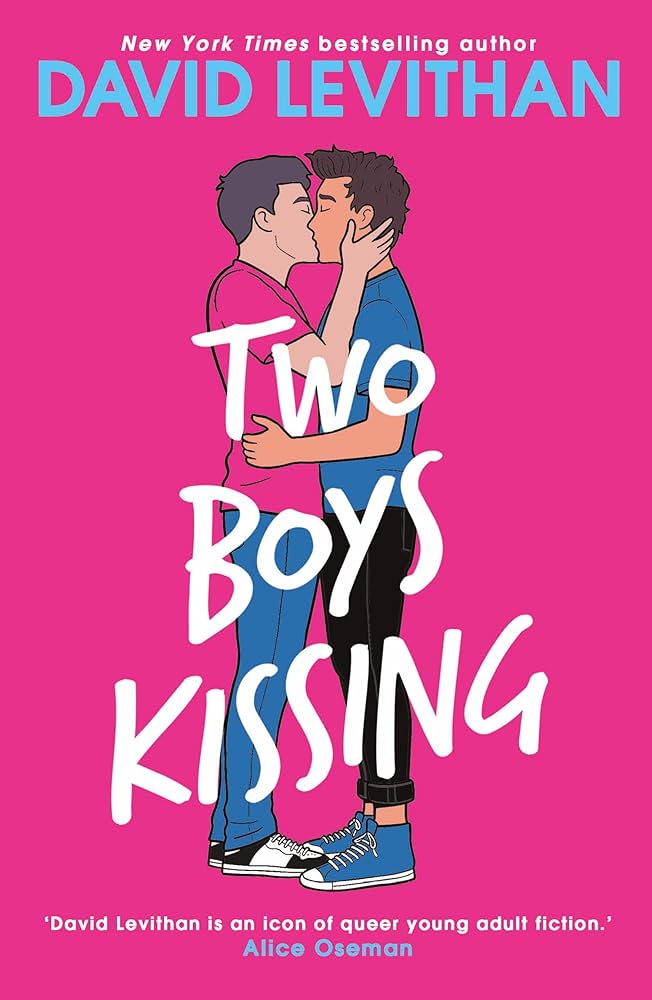by David Levithan
Published in 2013, David Levithan’s multi award-winning teen novel, Two Boys Kissing, follows the story of Harry and Craig as they attempt to break the Guinness World Record for the longest kiss. The narrative voice of this text is unique as the story is told from the perspective of a group of gay deceased men who died of AIDS. This book is recommended for readers in their late teens as this work includes profanity, violence, homophobic language, sexuality, and suicidal ideation. Aside from the main plot of the story, the largely LGBTQ+ characters expand the scope of the novel to include the issues of coming out, race, the transgender experience, and homophobia. To begin with, there’s Peter and Neil. While Peter is open about his sexuality, Neil is still closeted due to his fear of upsetting his traditional Korean parents. Cooper, another character, is also struggling with his sexuality and later runs away from home after his parents discover that he is gay. For Tariq, he has to contend with the problems associated with being both Black and gay. As Ryan and Avery form a relationship, Avery is deciding whether or not he should tell his new boyfriend that he is transgender.
Although this book is geared towards gay males, queer readers from all backgrounds can identify with the process of coming out—a process that is described in this book as intimidating for many at first. However, coming out has the ability to raise self-confidence as individuals can be honest about who they really are. The narrators from the AIDS Crisis remind readers that coming out wasn’t as possible for them as it is for those today. The kiss between Harry and Craig is symbolic of the differences that exist between the current generation of LGBTQ+ people and those from the former generation. By staging a public kiss, this text wants to impress upon the notion that through seeing two boys kiss, their identities along with who they love can not only be validated but embraced by those around them. In furthering this idea, there is a scene where parents bring their son to watch Harry and Craig. The narrators remark that the son will no longer be burdened with coming out as he is already accepted and can see the possibilities for LGBTQ+ indviduals before him. With this concept in mind, the story doesn’t shy away from the hardships endured by LGBTQ+ individuals. Instead, the story imparts moments of optimism and pays tribute to LGBTQ+ forerunners through quotes and the interweaving of queer history.
It is important to remember that your identity matters and is valued. If you are questioning your identity, would like to discuss coming out, or are in need of local LGBTQ+ resources, please contact the National LGBT Help Center through the support services listed below.
Lesbian, Gay, Bisexual, and Transgender (LGBT) National Hotline: 1-888-843-4564
LGBT National Coming Out Support Hotline: 1-888-688-5428 (1-888-OUT-LGBT)
LGBT National Youth Talkline: 1-800-246-7743 (1-800-246-PRIDE)
LGBT National Senior Hotline: 1-888-234-7243
You can also reach out online at www.LGBThotline.org/chat

